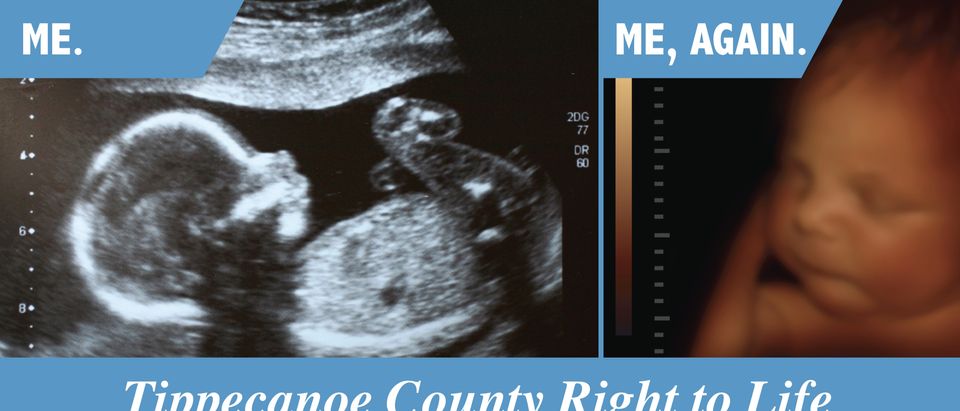A government-owned bus company determined an advertisement showing a picture of an unborn baby violated its advertisement policy.
CityBus, located in Lafayette, Indiana, said the Tippecanoe County Right to Life (TCRTL) ad was political and should not be on its buses. Conversely, the bus company featured ads on its buses depicting political ideas in the past, according to the lawsuit.
“An unborn baby’s humanity is a scientific fact, but even debatable ‘political viewpoints’ can’t be silenced by government officials whenever they dislike them,” Alliance Defending Freedom (ADF) Legal Counsel Samuel Green said.
The ad featured TCRTL’s “name, its website, two ultrasound images of an unborn child, and a third picture depicting a newborn wrapped in a blanket. The words ‘ME,’ ‘ME, AGAIN,’ and ‘STILL ME’ are superimposed over the pictures,” according to ADF.
The lawsuit shows previous political advertisements on CityBus vehicles addressing a local mayoral candidate, encouraging people to “pump some democracy” and depicting “the healthcare crisis in Indiana.”
The lawsuit alleges CityBus violated the non-profit organization’s First and Fourteenth Amendment rights for not letting the advertisement run.
“CityBus has a responsibility, like all other government entities, to ensure equal access to the advertising forums that it creates, and we hope that CityBus will quickly change course by permitting our client’s ad and revising its policies so that everyone can exercise their constitutionally protected freedoms,” ADF Senior Counsel Kevin Theriot said.
The whole idea of the bus advertisement started when TCRTL wanted to educate a younger demographic — many of whom ride the bus in Lafayette — about unborn children, according to the lawsuit.
Staci Lee Rice, a board member for TCRTL, contacted CityBus in September 2017 about advertising. CityBus’ Manager of Development Bryce Gibson said they would consider the proposal, the lawsuit says.
The lawsuit says Gibson said Citybus would produce the ad and both parties signed an electronic contract on October 16, 2017. A week later Rice sent an electronic file of the advertisement to the City Bus and signed another contract in person with Gibson.
On October 25, 2017, Citybus sent an email to Rice saying the advertisement did not comply with the company’s advertisement policies. Gibson said in the email CityBus “has allowed advertisement by organizations which evoke political sentiments when the advertisement does not exhibit a political viewpoint,” according to the lawsuit.
“CityBus’s stated reason for denying this ad does not pass constitutional muster. The government cannot arbitrarily apply its policies to permit or exclude ads based on its viewpoint preferences,” Theriot said.
CityBus violated TRCTL’s First Amendment because it “created an unreasonable, arbitrary, and disproportionate burden on the exercise of protected speech without any legitimate.” Also, the plaintiffs allege Fourteenth Amendment discrimination because they did not have equal protection under the law, according to the lawsuit.
The lawsuit says if it is successful, the plaintiffs want CityBus to put its advertisement on the bus and a decision to made on CityBus’ advertisement policy.


